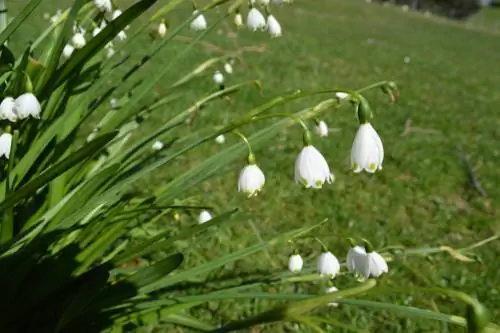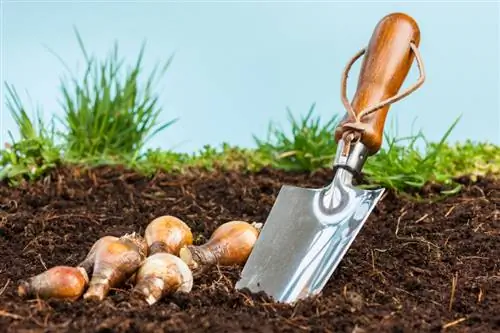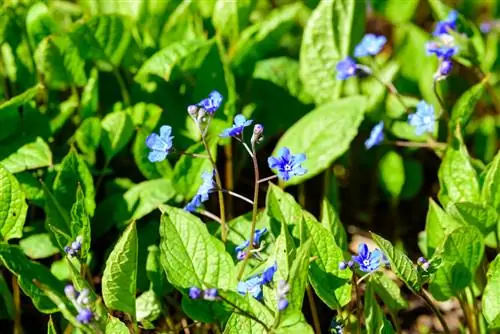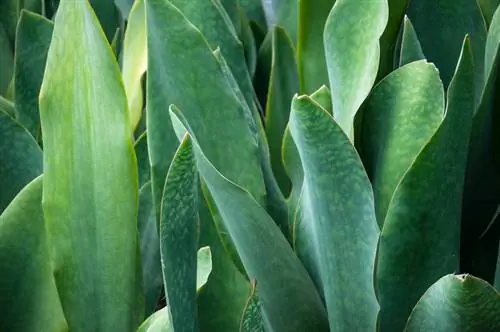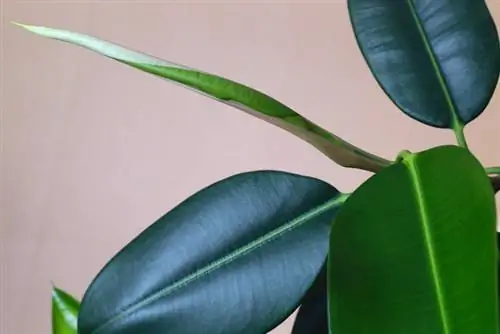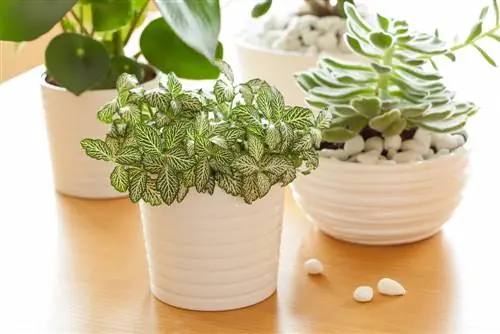- Author admin leonars@hobbygardeners.com.
- Public 2023-12-16 16:46.
- Last modified 2025-06-01 06:02.
The Märzenbecher produces beautiful flowers - no question about it. They are somewhat reminiscent of the poisonous snowdrop. This has also earned it the name “big snowdrop”. Is this visual similarity the only thing they have in common? Or does the Märzenbecher also produce toxic substances?
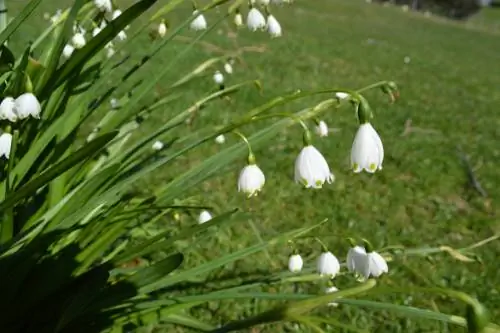
Are March cups poisonous?
The Märzenbecher is highly poisonous and all parts of its plant contain the poison lycorine. Poisoning can cause vomiting, diarrhea, and convulsions in people and pets. Particular caution is required around small children and pets.
Poisonous, and strong
Unfortunately, the Märzenbecher has a permanent place in the far too long list of poisonous floral plants.
- Märzenbecher is highly poisonous
- for people and pets
- all parts of its plants contain the poison
The symptoms of poisoning
The Märzenbecher produces various alkaloids such as lycorine. Alkaloids affect the heart and can cause cardiac arrhythmias. However, the first symptoms include the following:
- Vomiting
- Diarrhea
- Cramps
If small children confuse the bulb of these flowers with the kitchen onion and eat it, serious poisoning can even occur. Call the emergency doctor immediately and first and act according to his instructions.
Tip
It's safest if you don't plant Märzenbecher in the family garden at all. The little ones in particular are neither receptive to education nor can they be supervised around the clock.
Danger to pets
The plant, also known as spring knot flower, is slightly poisonous to horses. However, its effect on our favorite pets, cats and dogs, could be more severe. The smaller the animal is and the more of this highly poisonous plant it has eaten, the more threatening the poisoning is. It can even cost your four-legged friend his life.
So go to the vet as soon as possible. The symptoms of poisoning are similar to those in humans.
Careful handling is advised
Even if there are no children or pets in the garden, you still need to be careful when handling the Märzenbecher. If you plant and care for March cups or cut them for the flower vase, the plant sap that escapes can cause skin irritation.

